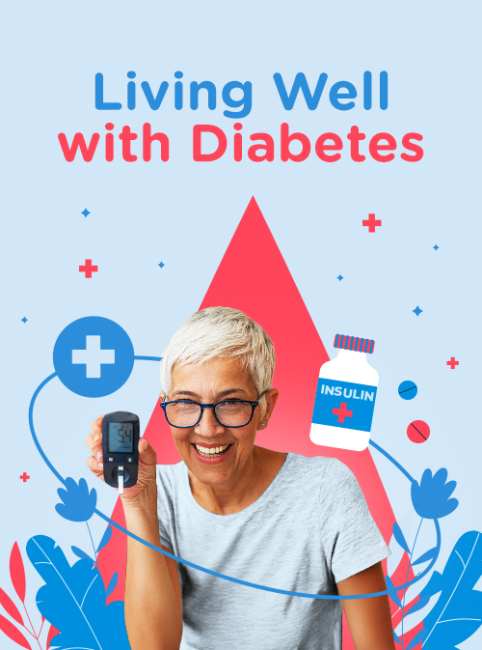Whether you are trying to get pregnant or you want to avoid becoming pregnant, knowing more about your cycle with its accompanying body changes can help plan your reproductive health. The more that you know about your ovulation period, the better knowledge you have on how you can maximize your ovulation period for pregnancy. Read on to learn important facts about ovulation.

Important Facts About Ovulation
What is ovulation?
Ovulation happens when a woman’s body releases an egg from her ovaries and then it travels to the fallopian tube where it waits to be fertilized by a sperm cell. When fertilization happens, a baby is conceived. When fertilization does not happen, menstruation begins.
Ovulation normally happens for just one day and occurs in the middle of a woman’s monthly cycle. This happens around two weeks before the end of her monthly cycle. One of the most important facts about ovulation to note is that it varies from woman to woman. There is no set pattern.
Facts About Ovulation: What Factors Can Affect Ovulation?
A woman is normally born with millions of immature eggs but only an estimated of 400 mature. These immature eggs or follicles undergo series of changes until maturation through hormonal influence.
Usually, one egg is released each time of ovulation. However, ovulation may be affected or disrupted by stress or illness. This can change the length of your monthly cycle or delay the beginning of your next cycle.

Symptoms of Ovulation
Not all women experience symptoms when they ovulate but for those who do, here are some signs that you may be ovulating:
- Vaginal discharge that is clear and stretchy
- Tenderness in the breast area
- Increase in libido or desire for sexual intercourse
- Light bleeding or spotting
- Small increase in your basal body temperature
- Mittelschmerz or ovary pain which is normally felt on the side of the abdomen
You know your body best. And when you learn to observe the different signs and cues, you will have a fair idea of when you are ovulating. Remember though that only a doctor can really tell if and when you are ovulating.
What is a Fertile Window?
One of the most important facts about ovulation is that we need to understand the “fertile” window.
Most women are able to conceive for only 5 – 6 days out of every month. Since ovulation happens only once a month, and a mature egg stays alive for only 12 – 24 hours, it is important to listen to your body if you are trying to conceive. This way, you can pre-plan your sexual intercourse with your partner to maximize the chances of becoming pregnant.
Since sperm can live up to 3 to 5 days inside a woman’s body, you can actually have sex before you ovulate. There is a higher chance of getting pregnant if the sperm is already awaiting the release of the egg within the 3-5 day time frame.
Facts About Ovulation: 3 Phases
One of the most important facts about ovulation is that it happens in three phases, which are defined by the period of elevated hormones during the monthly cycle:
- Preovulatory Phase of Follicular Phase – This happens in the first part of the cycle from the first day of menstruation until ovulation. The development of ovarian follicles, characterize this phase. This is also when the uterine lining begins to thicken.
- Ovulatory Phase – this is when ovulation or fertility actually happens. It lasts for 24 – 48 hours. This happens at mid-cycle in response to hormonal changes characterized by a peak in estrogen, any time from day 10 -17 of the follicular phase. This triggers the luteinizing hormone surge. Then, the mature ovarian follicle ruptures and releases an egg.
- Postovulatory or Luteal Phase – if the egg is fertilized, it will be implanted into the womb and if the egg is not fertilized, then the thickened lining of the uterus also breaks down and prepares to leave the body via menstruation.
Disorders Relating to Ovulation
When there are problems with ovulation, infertility may happen. One of the most common problems is Polycystic Ovarian Syndrome or PCOS. PCOS makes conceiving more challenging for most women due to chronic anovulation and hormonal imbalance.
Other disorders which can affect ovarian function
- Premature ovarian insufficiency where egg production is stopped prematurely due to decreased estrogen levels.
- Hyperprolactinemia is when a woman produces excessive amounts of prolactin which interfere with the normal production of other hormones, such as estrogen and progesterone.
- Hypothalamic dysfunction happens when the hormones that stimulate ovulation are disrupted.
The Ovulation Calendar
Knowing when you are ovulating or having a fair idea of when your fertile window may be can help you conceive if this is what you are after and help you avoid pregnancy if that is what you prefer. Knowing how your body works, the signs to look for, can increase the chance of pregnancy or minimize it, depending on your plan.
For the average woman, the average menstrual cycle lasts 28 days +/- 7 days. The fertile window lasts 6 days in the middle of the cycle. This “fertile window” comprises the five days before ovulation and the day of ovulation itself.
Knowing this is not a guarantee however that you will get pregnant if you had unprotected sex on your fertile window. This is simply an estimate to give you an idea of when the best time to have sexual contact.
Key Takeaways
The more you know about your menstrual cycle and facts about ovulation, the better control you can have over your body. What matters is that you know how your own ovulation works and if there are any concerns, always consult your doctor.
[health_tool_article id=”21534″]
[embed-health-tool-ovulation]




















